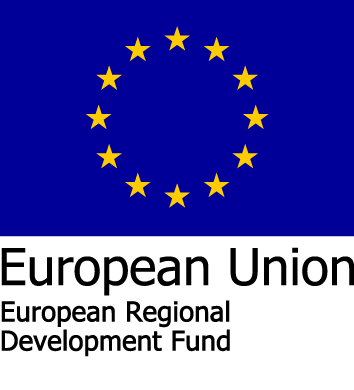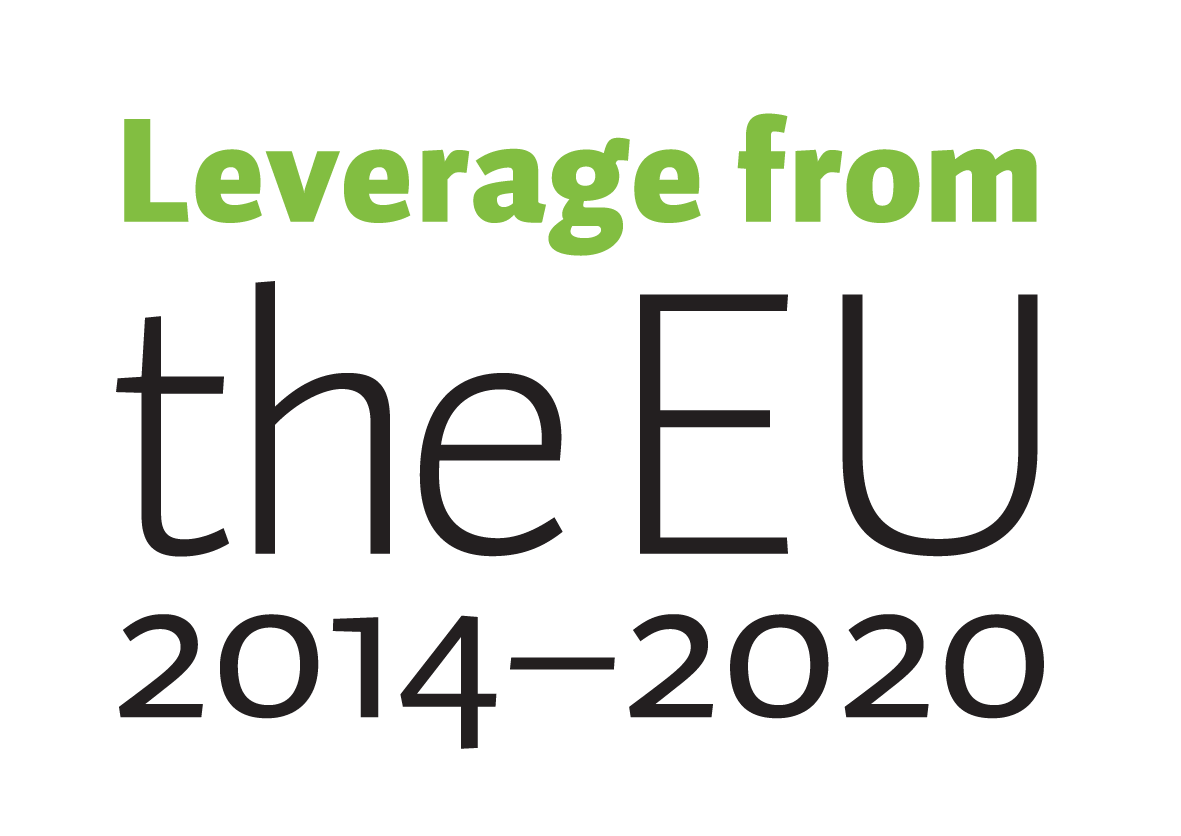Expansion of the Test Services to the European Market (ELY Project) (2023-2025)
ELY Centre (Centre for Economic Development, Transport and the Environment) and the European Regional Development Fund (ERDF) provide development grants for SME companies’ investments and development measures. These aids are granted to companies that are just starting a new business, that want to renew their operations, and invest in growth, especially on a global scale.
In this project Verkotan Oy expands test services to new radio devices test areas and increases portfolio of new test services in antenna testing area with new test service methods. Target of the project is to increase export of Verkotan Oy’s test services especially to the European markets.


Active Antenna Test Service Development (ELY Project) (2019-2021)
ELY Centre (Centre for Economic Development, Transport and the Environment) and the European Regional Development Fund (ERDF) provide development grants for SME companies’ investments and development measures. These aids are granted to companies that are just starting a new business, that want to renew their operations, and invest in growth, especially on a global scale.
For base stations’ active antenna testing, 5G testing is no longer done through traditional cable connections but through the over-the-air interface. Furthermore, within 5G, the frequency range has expanded significantly. Due to these changes, mobile device over-the-air performance testing now requires new types of testing services with updated testing equipment. Relating to these new testing services, Verkotan Oy explored possibilities for further internationalization.



Artificial Intelligence for Green Networks (AI4Green) (2019-2022)
AI4Green was an international CELTIC Plus project with project partners from five countries. AI4Green was built around the need to develop comprehensive, sophisticated, and energy-efficient algorithms and solutions for both radio access and core networks, as well as data centers and storage, while keeping in mind the emergence of new architectures and the development of smart grids. The main goal of this project was to achieve an improvement of about 30-40% in end-to-end energy efficiency compared to current networks.
Verkotan contributed to the project by testing a machine learning-based clusterability algorithm and software developed by VTT for anomaly detection. Testing was conducted with real antenna measurement data. Verkotan also tested ray tracing software from the University of Oulu, which can be used for designing energy-efficient radio networks. In addition, Verkotan measured a MIMO radar device (at 60 GHz) developed by VTT. This was part of the development of Joint Communication and Sensing (JCAS) devices.
Read more about the project here!

4G and 5G IoT Device Testing Services (ELY Project) (2018-2020)
ELY Centre (Centre for Economic Development, Transport and the Environment) and the European Regional Development Fund (ERDF) provide development grants for SME companies’ investments and development measures. These aids are granted to companies that are just starting a new business, that want to renew their operations, and invest in growth, especially on a global scale.
Verkotan applied for funding for a project called “Providing New Testing Services for 4G and 5G IoT Devices. This consists of searching for business opportunities for testing 4G and 5G IoT devices globally, as well as investing in the necessary equipment for this type of testing. The goal is to learn about the market and enable new testing services for us.

Wearable Cellular Extension Development (WERME) (2017-2018)
Hilla’s WERME initiative was aimed at identifying and solving fundamental problems related to multi-radio product implementation. With the experiences and platform of WePe projects, there was a solid base for further research. The target was to create the best wearable device performance and quality in Oulu.
Verkotan aims to become the leading test house in the world for wearable devices. We identified this as a business opportunity to expand into performance measurement services for future wearable products that utilize low energy, long-range real-time communications. This project succeeded in utilizing new radio systems in the next generation of wearables. In addition, the WERME project continued expanding the WePe project in the area of GPS.
Reliable Industrial Communication Over the Air (ReICOvAir) (2016-2018, EU Eureka Celtic+)
A necessary rating system for wireless communication systems for the Industrial Internet of Things was developed, standardized, and integrated into a single comprehensive software and hardware testbed solution in the ReICOvAir project.
This multinational Celtic project contributed to modeling the radio channel for the industrial environment. Verkotan gained valuable knowledge in hardware test system design and validation.

Global Testing Services for Wearables (ELY Project) (2016-2018)
ELY Centre (Centre for Economic Development, Transport and the Environment) and the European Regional Development Fund (ERDF) provide development grants for SME companies’ investments and development measures. These aids are granted to companies that are just starting a new business, that want to renew their operations, and invest in growth, especially on a global scale.
Verkotan applied for a grant from the ELY Centre and the ERDF. The granted project was called “Providing Testing Services for Wearables Globally. In this project, Verkotan sought global business opportunities for testing services for wearables, and the project also included equipment investments. Due to the funding, we were able to expand our testing services to wearables and other wireless devices.

Digital Contacting for Enhanced Customer Value (DiCo) (2016-2017)
DiCo project was started to digitize Verkotan’s marketing and create a better user experience, as well as add value to our customers with digital customer service solutions. Verkotan wanted to represent a novel test laboratory in the still conservative industry. During the DiCo project, Verkotan intended to improve its digital tools and, thus, enhance its competitiveness. TEKES, now known as Business Finland, funded this project.
Verkotan improved its internal and external communication during the DiCo project. As a concrete example, we added a digital marketing concept and an online chat to our website for a better and faster user experience and real virtual contact with our customers. Additionally, by analyzing data, we could understand our website visitors better and now offer them the best value with our content. Furthermore, our marketing processes were automated and synchronized with effective digital tools.
Hilla Project Consortium (CoMoXX) (2015-2017)
The aim of the project was to build a best-in-class communication module for poor network conditions for vehicle manufacturers by 2017. The data must be stamped with precise position information, even in conditions where satellite positioning is not available. The consortium consists of Lewel Group, Antcore, Verkotan, and a team from the University of Oulu (CWC).
This novel and versatile communication module for poor network conditions was meant to enable position stamping based on location sensors. Verkotan gained a lot of valuable information from this research.
Wearable Technology Performance (WearMark - SME-1) (2015-2017)
Verkotan performed a study to find business opportunities for a lab testing environment for wearables that can successfully replace and outperform field testing by simulating real-life field scenarios, e.g., multi-path environment, body and arm movement, and testing without cables. This project has received funding from the [European Union’s Horizon 2020 research and innovation program] [Euratom research and training program 2014-2018] under grant agreement No [717350].
Verkotan created a business plan to define the best strategy for the commercialization of the method and technical feasibility assessment of the OTA test environment for Healthcare & Medical, Sports, and Industrial Smart Clothing wearables categories.
Wearables Performance Evaluation (WePe) (2015-2017)
The WePe project was started to develop the Over-the-Air testing system for wearables. It supported wearable device wireless performance standardization work, system architecture development, and also managing pilot cases for novel end-to-end use cases in the laboratory. The Finnish Funding Agency for Technology and Innovation (TEKES) granted financing for the WePe R&D project.
This project improved the quality and reliability of wireless performance in wearable devices. Also, standardized wireless performance testing in a laboratory environment gave competitiveness to companies in this market. As a result of this project, Verkotan received its first patent, granted on 14.12.2018.
Click here to watch video about Verkotan’s GPS Air Performance test.
5G Test Network
5G Test Network facilities located in northern Finland in the city of Oulu offer unique possibilities for testing 5G technology, its components, or new services in real time. 5GTN is the world’s widest 5G Test Network with open access, consisting of several sites and being well-connected with national and worldwide test environments.
To be part of the 5GTN community is a valuable asset for Verkotan and all its associates. With the cooperation of local technology leaders, we can learn from each other and together create joint added value for everyone in the community. For Verkotan, operating in the wireless industry, this cooperation means more opportunities to help us verify performance in a highly realistic radio environment.

Teuvo Heikkinen
Manager of Collaboration R&D Projects and Business Development